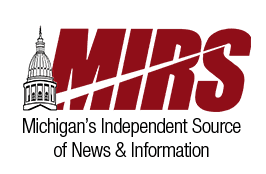(Source: MIRS.news, Published 03/19/2024) Fifty percent of the total funding appropriated into the Strategic Outreach and Attraction Reserve (SOAR) Fund will be directed to "transformative community investments," such as housing, transit and childcare services, under legislation approved by the Senate tonight by a party-line vote.
SB 559 by Sen. Mallory McMorrow (D-Royal Oak), chair of the Senate Economic and Community Development Committee, re-brands the SOAR Fund as the "Make it in Michigan Fund." Originally, the legislation aimed to dedicate 20 percent of a company's package of SOAR Fund incentives to community investment, but the legislation was modified with a substitute adopted around 9 p.m. tonight.
The SOAR Fund was established near the end of 2021 with an initial appropriation of $1 billion from the state's General Fund.
It was designed to lure large-scale business developments to Michigan. The performance-based grants within the SOAR Fund program include Critical Industry Program (CIP) grants for qualified companies to spend on workforce development and training programs, heavy machinery purchases, infrastructure modifications and "other capital investments."
There are also Strategic Site Readiness Program (SSRP) awards offered through it, authorizing local economic development corporations or municipalities to receive them exclusively for making infrastructure improvements in preparation of a business' arrival.
SB 559 and SB 562 (also passed by party-line) work together to create a "Michigan 360 Program." Unlike the other two programs, which focus more on the company itself and how to prepare a community for development to begin, McMorrow's program is exclusively devoted to the community and how to improve an area's quality of life.
"These community investments really matter, and there is a limit to what we can accomplish with incentives, that we can't incentivize our way out of some of the things that young people are telling us they want in our communities," McMorrow told members of the media.
She said the way the restructuring works in her legislation is that 50 percent of total funding in the SOAR Fund is eligible for community investments, and does not need to be tied to an economic development project.
If you're the city of Detroit, McMorrow said this could be the first step toward regional transit in a "way that is more proactive, in a way that signals to companies – not only in Michigan, but around the country – that we hear you, and we are investing in things that are going to attract and retain young talent in our state."
Moreover, the legislation encourages the Michigan Strategic Fund (MSF) board – the body responsible for awarding economic incentives and business grants – to meet with local and regional economic developers to identify potential community investments that "could spur economic development."
According to the Senate Fiscal Agency (SFA), nearly $1.7 billion has been deposited from the tax-dollar-funded SOAR Fund for corporate development projects, with General Motors Co. being designated the most at more than $600 million for electric vehicle (EV) projects in Delta Township near Lansing and Orion Township in Oakland County.
McMorrow described how changes in the market and economic realities cause the projects that have been awarded SOAR Fund incentives to resize, and her legislation delivers a maximum allotment of flexibility.
"Can we get more nimble and creative with the types of investments that we're making in our communities directly? That hopefully can improve our chances and the number of not just projects, but good projects that are actually going to be aspirational and encourage people to want to stay here, have kids here and move here," she said.
As for the opposition, Sen. Thomas Albert (R-Lowell) gave a "very short speech":
"SOAR is an objective disaster, and it should be repealed."

